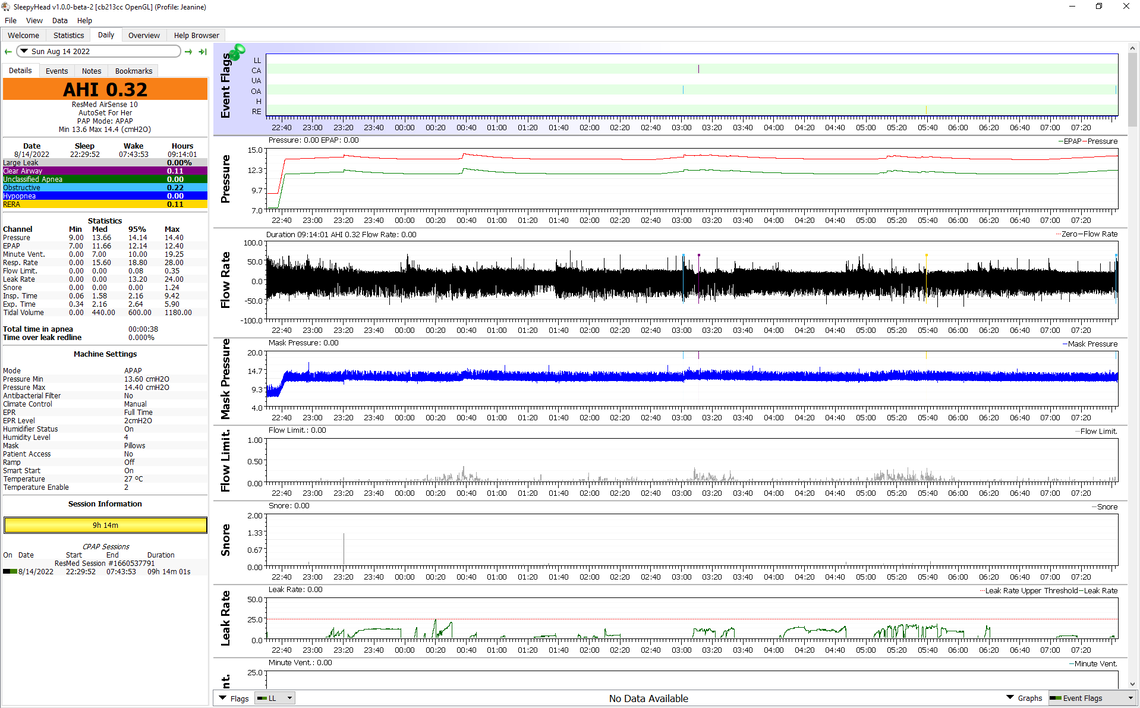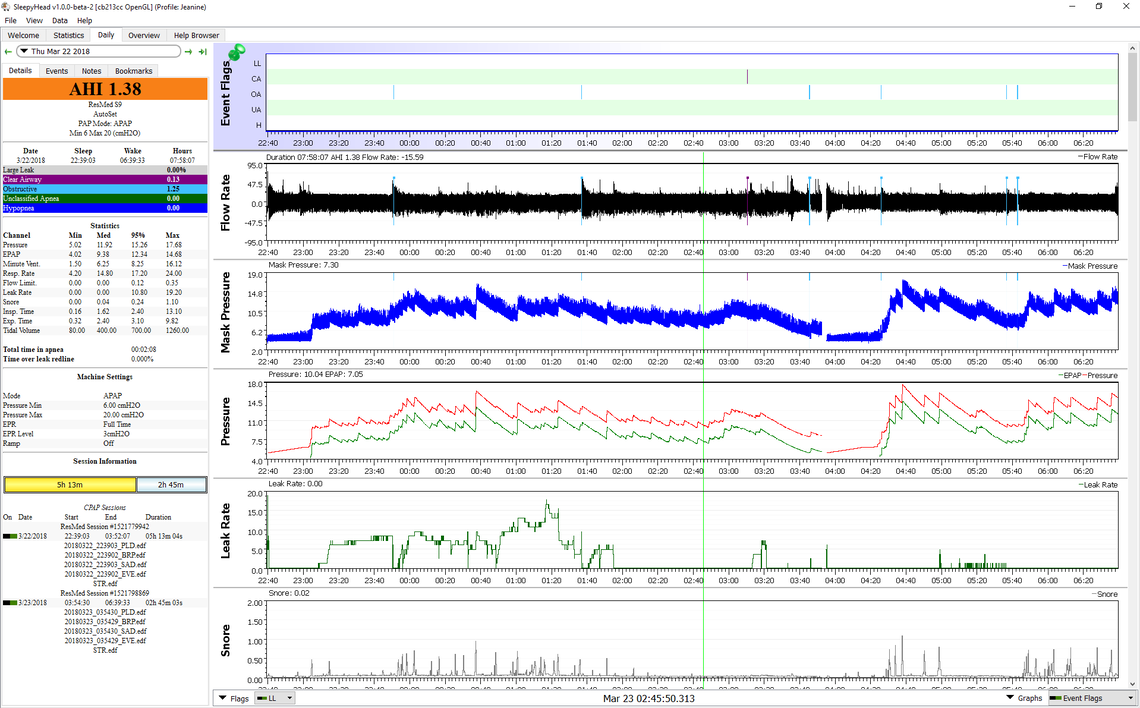I am new to CPAP as of April 2022. I got a brand new ResMed AirSense 11 at that time. There was a brief period in the beginning (about 3 weeks) where I got a signal. And then it stopped and hasn't been working since. Doesn't matter what outlet in my house I try. I live in downtown right by a cell tower. My next door neighbor has an AirSense 10 and has been getting a strong signal every day for at least 1.5 years. We both looked in our clinical menu and we both have 4G. My neighbor's machine gets a strong signal in his AND in my house. I don't get a signal in my house or my neighbors. The supplier (Performance) just says you don't have a strong enough signal at your house so just use an SD card. But my neighbor's 4G AirSense 10 gets a great signal in my house. I don't get it and Performance doesn't have any answers.
Any similiar experiences out there and were you able to get this problem resolved? Mine's a brand new machine! Thanks, Christine
It certainly sounds like a defect with your particular machine. The chip that provides this over the wireless service is one of the ones that is in short supply due to problems in the factory that make them. Perhaps they are using lower quality chips or ones that have not been fully tested. ResMed has actually released an AirSense 10 machine that does not have this wireless chip, and sell it at a lower price. They are trying to meet demand for the machines despite the chip shortage.
It would seem you will have to work with the supplier to get a new machine. Or, the other alternative is simply not use the wireless service. I have an AirSense 10 that appears to be sending data somewhere but I have never signed up to MyAir. It appears to me to be a very limited application and is mainly intended to monitor compliance with using the machine. Some who get their machine provided by the healthcare have an obligation to use the machine for 4 or more hours a day, or they lose the machine.
The other option is to download OSCAR which is a freeware program that does detailed tracking of all your data. Due to the wireless data limits very little summary data is actually sent to the MyAir app. OSCAR on the other hand can track second to second data for the whole night. All this data is stored on your SD card, and is available to view with OSCAR. In my opinion OSCAR is far more useful than MyAir.
Thanks for your reply. Can you explain a little more about the SD card and OSCAR? I've never used an SD card. I know where the slot is to put one in the AirSense 11. Do you put that SD card in the slot and then every morning take it out? And do you have to buy something that you put that SD card in that then transfers the data on it to your computer or iPhone? Then you put it back in the CPAP machine and repeat the process the next morning to transfer your data? One of the main reasons I need the data uploaded is so the doctor can see it before an appointment. I know doctors have a way to see data via MyAir (maybe it's called AirView?) but can doctors somehow access the data in OSCAR remotely?
Every machine is delivered to the supplier with a SD card already in it. If you don't have a card then the supplier must have removed it. The normal card is a 4 GB, but any full sized SD up to 32 GB should work. The only way your doctor can see the detailed data is if you bring the SD card in so they can download the data and view it. The detailed data cannot be viewed wirelessly to my knowledge. The summary data sent via MyAir is of limited used.
To view the data you need a PC or Mac and need to download the OSCAR program and install it. You will need a SD card reader. If your computer does not have one built in, the easiest way is to buy a small portable SD reader (about $10) that plugs into your USB on the computer. Your can remove the card and download the data daily, or do it periodically. I believe the 4 GB card will hold up to one year of data before it starts to overwrite it.
Here is an example of the daily report screen from OSCAR. Other historical data is available under the Statistics and Overview tabs. It tracks all the setup changes made to your machine since it was new (providing there was a SD card in it).

Thanks again for your quick replies. Do you have any idea if doctor's can remotely view this data from OSCAR........as they can from MyAir? I suspect not but just wondering if you know the answer.
I am not aware of any way of the doctor being able to remotely view OSCAR data. You potentially could send the files and then they could be viewed. That is a bit cumbersome though. The official program from ResMed that doctors can download is called ResScan. If your doctor has ResScan you can bring your SD card in and then they can look at the data. I believe it is similar to OSCAR, but is only available to medical professionals.
To be frank, I would be quite skeptical of anyone using MyAir level data to make decisions about treatment and CPAP setup. There is a lot more to it than what is in MyAir.
It's so frustrating to not get any help from the supplier or ResMed. I suspect ResMed knows about these issues but choose not to address them in any meaningful way.
My doctor does most of her visits by zoom and her office would take the better part of an entire day for me to get to and return from. So it sounds like I am left with mailing (in the U.S. mail) an SD card and hope that it gets to her before my visit.
I think what I would do is email the screen shots of the Daily Tab in OSCAR for a few days that you are concerned about - similar to the one I posted above and below. The main thing for now is to get a SD card in the machine so it is capturing data each night. What a doctor should be looking for is what is the max and min pressure set at, how high does the pressure go each night, and at what pressure are apnea events occurring. What is the breakdown of the AHI into types of events. Here is an example of a machine that is not so well set up with some issues. The minimum pressure is too low, and the max pressure too high. The ramp start pressure is also too low. Each person needs a different setup to get the best results. What is your AHI and 95% pressure typically?

Another option you would have is to do a zip file of all the data on your SD card and send that to your doctor. My wife has a new A10 machine which she has been using for 40 days, and the total space used on the SD card is 158 MB. So it appears each day adds about 4 MB of data. If you were to put a card in your machine and collected 10 days of data it would be about 40 MG to send. One option to send large files is WeTransfer. You upload the files and an email with a link is sent to your doctor so they can download them.